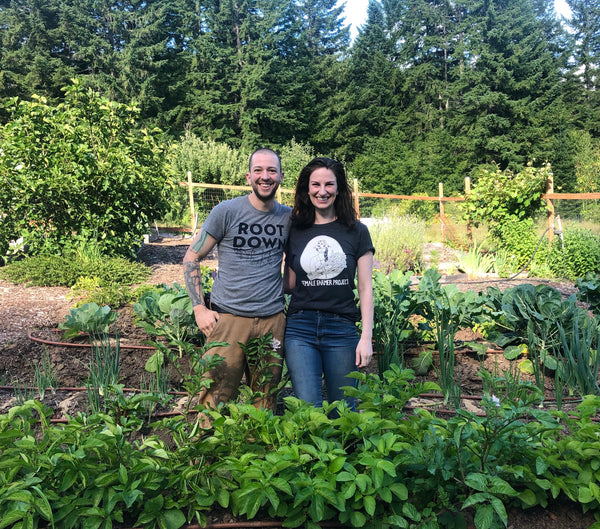
Eryn Leavens and Oliver Gawlik wearing our Root Down Tee and Female Farmer Project Tee.
____
Tell us about your farm!
Happy Compromise Farm (HCF) is a small, regenerative, low-waste farm deep in the forest of Drain, Oregon. Our property is 20 acres – roughly half-forested and half-cleared for animals and growing food. We moved to the farm in July 2019. In one year, we have started a veggie/flower/herb farm, a 501(c)(3) nonprofit animal sanctuary (The Sanctuary at HCF), an Airbnb farm stay in our yurt, a ceramics company in our shop, and an online store of our handmade soap. The Sanctuary at HCF is the forever home for 65 rescued animals, most of whom are cast aside from the meat and dairy industries.
____
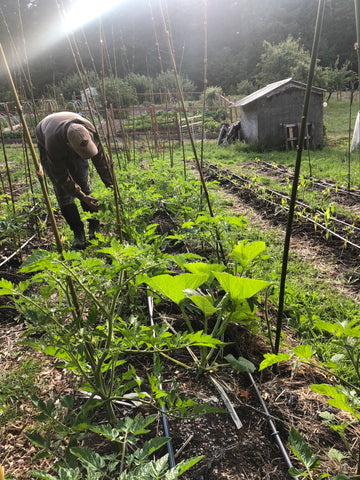
____
How did you get into farming?
Oliver had his first experience farming through WWOOFing while living in New Zealand in 2009. The farms where he worked all employed permaculture and regenerative practices, and when he came back to the US he continued to study those practices and wondered why he had never heard of them before going to NZ. He also worked on several different kinds of farms all over the US, and was working as an edible landscaper when he and Eryn met. Eryn had been backyard gardening for several years and wanted more space to grow, and also had animal rescue and care experience.
____
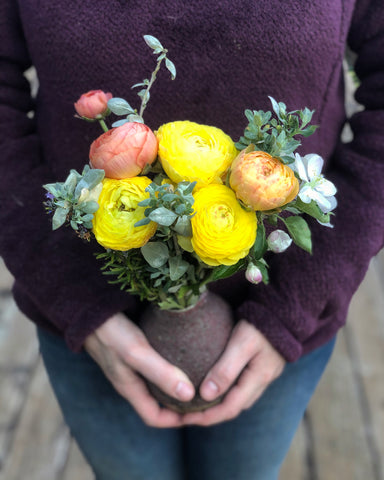
____
What are some of the biggest challenges you face as a farmer?
One of the earliest challenges we faced was finding affordable land – the land grab on the West Coast is real! We competed with several legal marijuana operations over properties before finally landing at HCF. Getting our friends and families to understand what we are doing and why it's important has also been tough at times – we get a lot of "Wow, that's so much work. I could never…" As vegans, finding supplies for farming, such as amendments, also takes some extra searching, since most of the amendments that are used either come from chemicals or are ground-up animal bones, feathers, and blood.
COVID has also impacted us as we had to shut down our farm stay and tours, which brought people to the farm where they could buy items we made and grew. Consequently, we've been able to switch to an online model for some items, though we do plan to return to in-person sales in the future as well.
Additionally, Oliver is a first-generation trans farmer, which is simultaneously incredible because he can show younger LGBTQ generations that they can also be farmers if they want to, and difficult because we live so rurally that it doesn't always feel safe to be "out." We try to be as transparent and honest on social media as possible so that younger people who are interested in how we are living can find us and feel comfortable reaching out. As the only trans founder of an animal sanctuary, it feels important to be a visible face online.
____
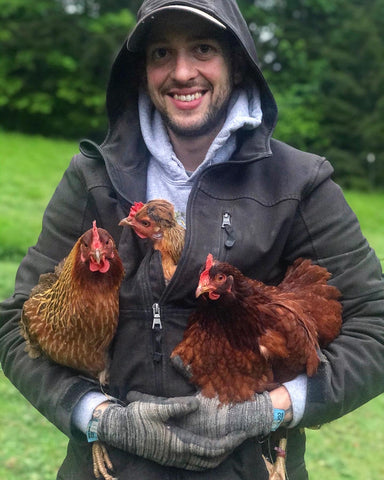
____
What are your thoughts and beliefs on farming in the face of climate change?
Our values are deeply rooted in regenerative farming and veganism, both of which we believe are huge climate change impactors. The current agricultural systems that are in place in America have greatly harmed the earth, animals, and farmers. Farming needs a total 180-degree change in order to be sustainable and profitable in the long run without government subsidies for monocropping and meat and dairy production, all of which impact the climate and our country's healthcare crisis negatively. It won't be easy to unravel the damage that has already been done, though with enough incentive we hope that people can make important changes to right the climate situation.
____
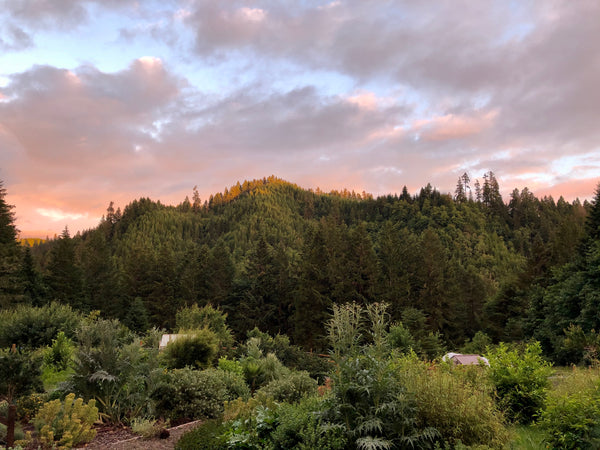
____
What are some misconceptions you hear about farming and agriculture when it comes to climate change that you'd like to address?
We often hear that animals, animal by-products, chemicals, and tilling are needed in order to farm successfully, and we strongly disagree with that. None of these are needed to grow healthy food, though they might be easier, faster approaches than organic, regenerative, vegan methods. Easier isn't always better in the long run, however, and since our big-picture goal is to improve our land and the lives of all who reside on it now and in the future, we want to ensure we're doing our best to make it better for everyone while also fighting climate change. Additionally, it's important to us to harken back to the history of BIPOC farmers/gardeners and continue their practices, such as the "three sisters" planting method, as a model for what the future of food can look like in contrast to more modern, conventional farming techniques which have done so much damage to the land.
____
What future are you farming for and how do you think your farm can make a difference?
We are farming for food sovereignty for everyone in the future. We truly believe that a shift to small, local farms will not only make healthy food more accessible to everyone, but also grant farmers the ability to earn what they deserve for the essential work they do. We are farming to educate backyard (and front yard and balcony!) gardeners, and for everyone to have the right to know where and how their food was grown. We are farming veganically for the future of our animal friends. Through our farm tours and yurt stays, we aim to spread the message of kindness to all living creatures, as we know it's easier to eat food you haven't met and with whom you haven't made a personal connection. We are also farming for a future where anyone can grow food, regardless of race, gender, financial status, or sexual orientation. Though we have only a small plot of land, we hope that by striving for sustainability and sharing our journey we are able to forge a path to a better tomorrow.
____
Where can we follow along and support you?
Instagram: @happycompromisefarm
Website: www.happycompromisefarm.com

